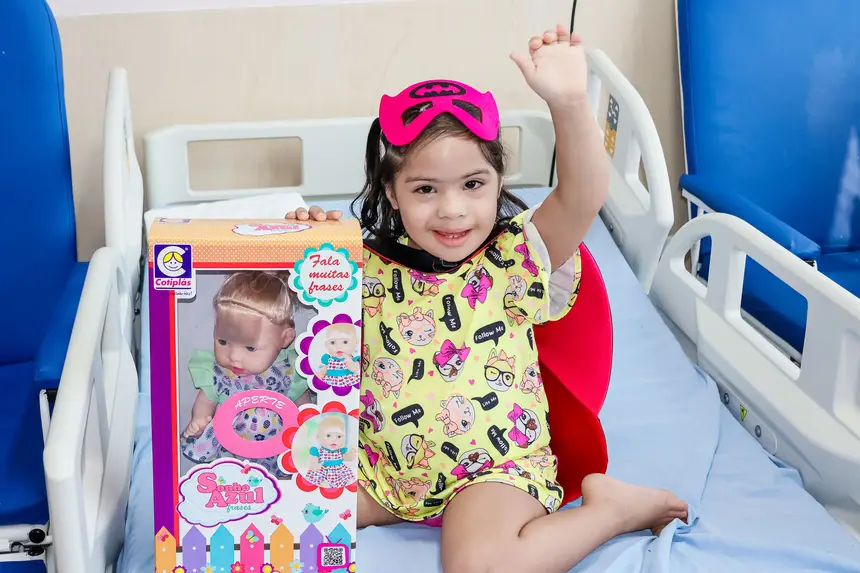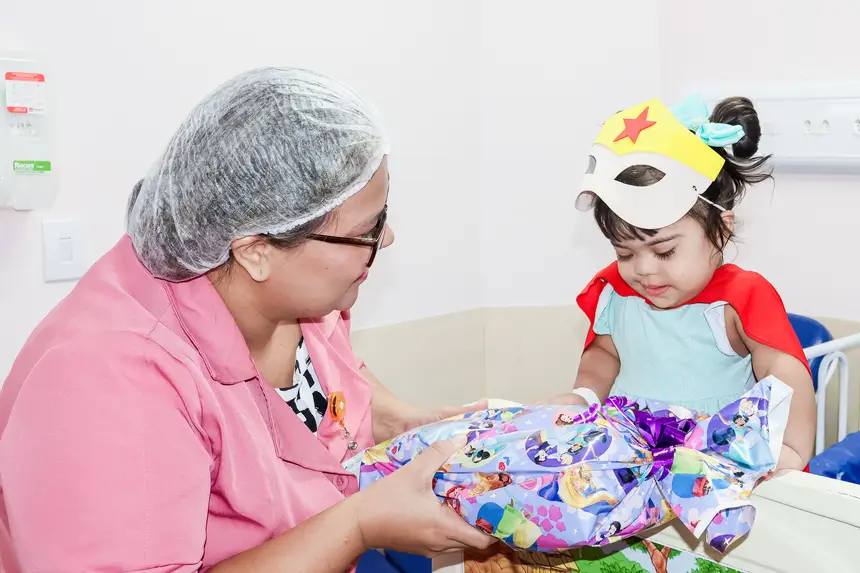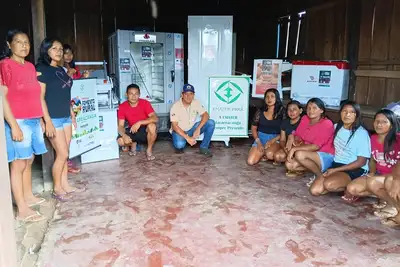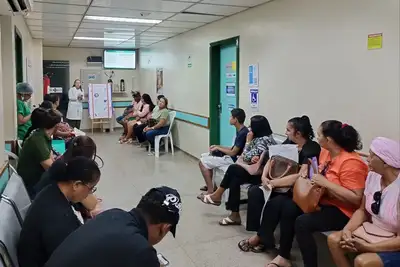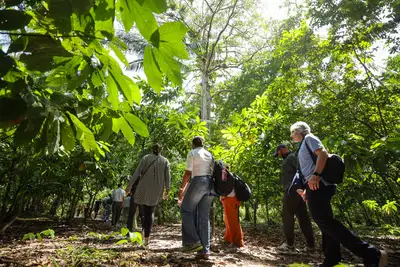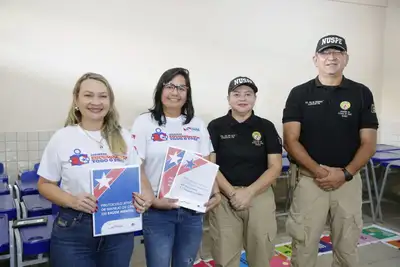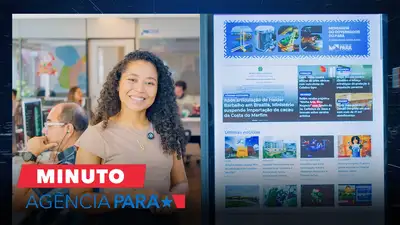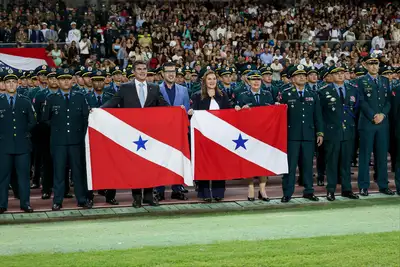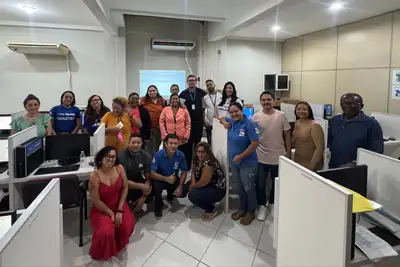'Heart Heroes' humanizes pediatric heart surgery at the Hospital de Clínicas
Pioneering initiative from HC transforms the journey to the operating room into a moment of emotional support for children and families
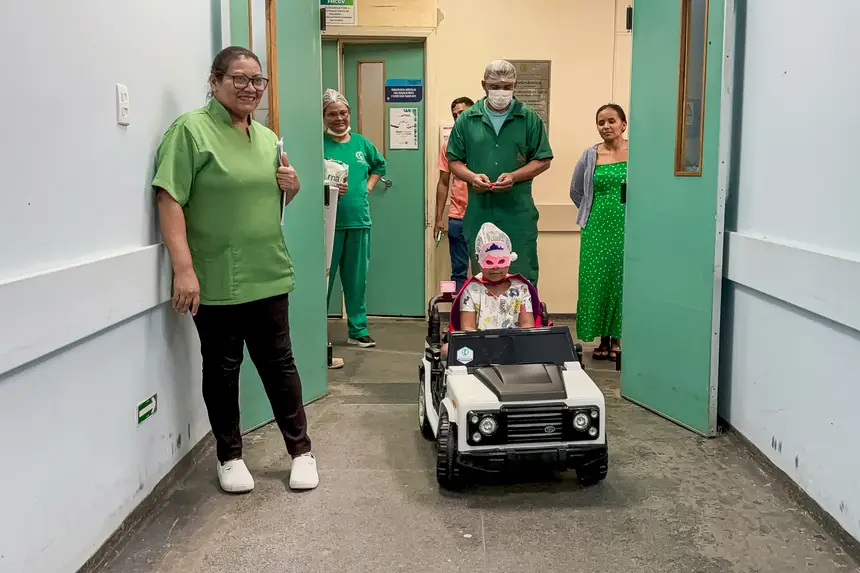
If a hospital can be an environment that generates fears for an adult, imagine for a child, especially in the face of surgery. Transforming fear into courage is the purpose of "Heart Heroes," a pioneering project among the state's hospitals, conceived by the Gaspar Vianna Hospital de Clínicas (HC), a reference in cardiology in the Northern Region.
The project aims to humanize the care of children undergoing heart surgeries, making the moment of going to the operating room lighter, more affectionate, and welcoming.
As part of the project, young patients head to surgery driving an electric cart, dressed in capes and superhero masks. In the operating room, they are welcomed by a multidisciplinary team, also in costume, creating an environment of empathy and relaxation.
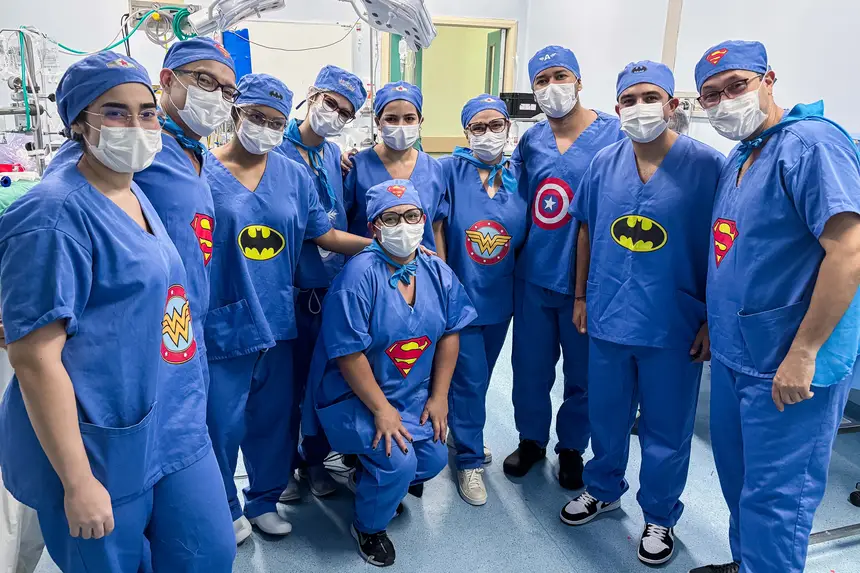
The head of cardiac surgery at HC, Maurício Fortuna, emphasizes that the initiative combines technique and sensitivity. "This project comes to the Hospital de Clínicas at an extremely opportune moment, as the structure is being remodeled and children need this support. Performing heart surgery is always a challenge, as families arrive with a history of suffering, waiting for treatment. Therefore, this initiative is extremely important and highly valuable in this journey," highlights the surgeon.
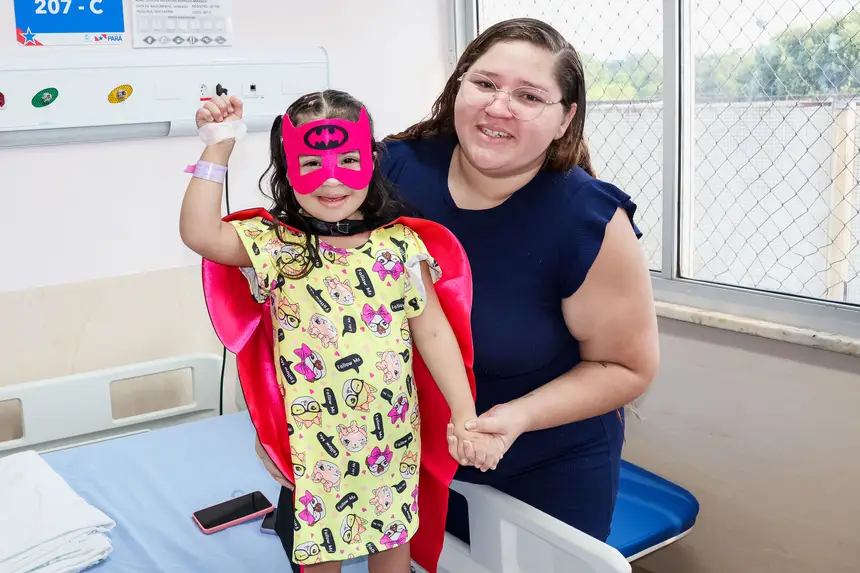
Joy and lightness - One of the first participants of "Heart Heroes" was Breno, 1 year and 9 months old, from Chaves, in the Marajó Archipelago — about four days by boat from Belém. Bruno was born with a complex congenital heart defect, which caused heart failure, fatigue, shortness of breath, and difficulty gaining weight. After the surgical correction performed at HC, he went through recovery marked by moments of lightness and care.
Breno's father, Ewison da Costa, 37 years old, was moved when recalling the day of the surgery. "He went in laughing, very calm, entered the operating room laughing. It was great! Before, the child was almost ripped from the mother's lap to go to surgery. Our son, no. He went in laughing in the cart, entered laughing. It was emotional, everyone was moved by the way he went. We can only thank for everything the hospital did. The project helped a lot. Just gratitude, first to God, and then to you, to the hospital in general, which welcomed us very well," he says.
Emotional health - The psychologist from the Pediatric Clinic, Paloma Vanetta, explains that the playful environment has a direct impact on the emotional health of children and their families: "This project that HC is implementing, with the electric cart and costumes, goes far beyond a simple playful resource. It also becomes a therapeutic instrument. It is impressive to see how this makes a difference in the emotional and psychological state of the child, the family, and even the team. This moment helps the child to better cope with anxiety, strengthen bonds, promote emotional health, and create positive emotional memories. It is about re-signifying the hospital environment, showing that, even in a space of care and treatment, they could continue being children. It is fantastic," emphasizes Paloma Vanetta.
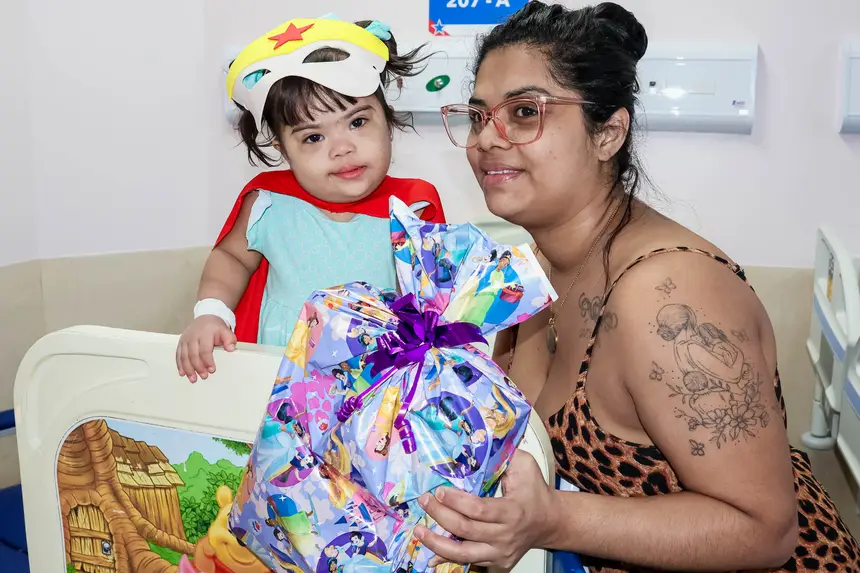
The mother of 4-year-old Débora — who underwent cardiac catheterization for the correction of Patent Ductus Arteriosus (PDA) — also reports the positive impact of the project. "I confess that, at first, I was apprehensive, afraid it wouldn't work. But the psychologists and nurses began to reassure us. Seeing my daughter calm, being able to choose the costume she wanted to wear, made me much more confident. This support made all the difference, both for the children and for the mothers, who already come apprehensive. This care brought a lot of calm to us," says Brenda Brandão.
The initiative has been permanently incorporated into the routine of pediatric cardiac surgery at HC, reinforcing the state government's commitment to comprehensive care, support, and innovation in public health in Pará.



